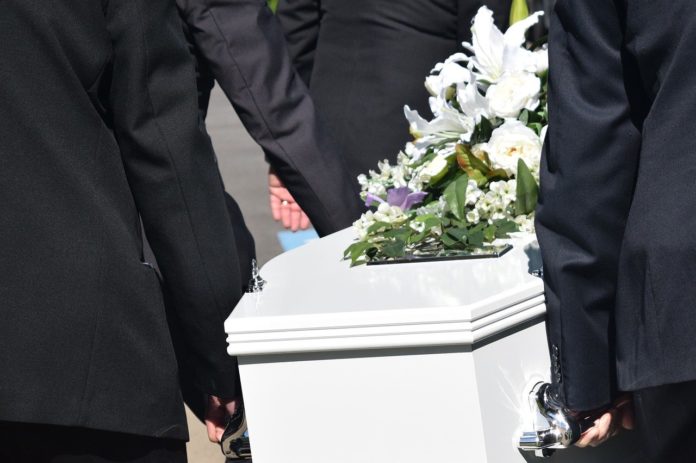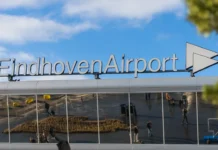Municipalities in Noord-Brabant are increasingly arranging and paying for funerals and cremations, instead of the deceased’s next of kin. It happened at least 109 times last year, almost a third more than in 2018. This number will probably be larger at the end of the current year. Local governments that arrange funerals or cremations lost almost two hundred thousand euros last year, a research by Omroep Brabant clarified.
Van gemeentewege (via the municipality). This is how funerals are officially called, if they are arranged and paid for by the local government. Often it concerns a deceased without money or surviving relatives who do not want to pay for the funeral or cremation. In such cases, the municipalities where the deceased was found, are obliged to arrange the funeral. These are usually austere funerals and cremations, with few or no family and friends in attendance.
The arrangements for such a funeral are time-consuming, according to a survey of all Noord-Brabant municipalities. Here’s the thing: when someone dies, relatives must be informed. If they cannot be found (quickly), a true search for next of kin begins. Officials search the deceased’s home for clues.
It sometimes takes several days before next of kin are found. “Address and telephone books are searched, people in those books are called or searches are made via the Burgelijke Stand (Civil Registry),” writes the Helmond municipality.
No contact
If there are family members, they are instructed to arrange the funeral. But sometimes there is a lot of resistance. Next of kin say, for example, that they have not had contact with the deceased for a long time. Or that they are afraid of having to pay the costs. Sometimes next of kin do not have enough money. As a rule, municipalities insist on arranging the funeral themselves. “It is not up to the community to pay for this, but to the family,” writes Helmond. However, if this does not happen, the municipality itself will engage a funeral director.
This has happened more and more in the past five years, according to the survey. Of all municipalities in Noord-Brabant, 40 provided information. They arranged 109 funerals last year and 68 up to and trough July of this year. The officious number is probably higher, because some municipalities did not provide data for this year. In comparison: in the whole of 2018, it occurred 83 times. In total, about 23,000 people die in our province every year.
Nowhere in our province are there so many municipal funerals this year as in Tilburg: 31. Until August, the municipality had to arrange a funeral every week on average. Tilburg does not know why that is.
POssible underlying reasons are loneliness and quarrels. Family quarrels play an important role. “As a result, relatives do not want to arrange and pay for the funeral,” writes the municipality of Tilburg. Poverty is also often involved.
Cremation or burial?
Municipalities deal differently with the question whether someone is cremated or buried. Most try to find out what the deceased’s wish was and go along with it. But sometimes municipalities simply go for the cheapest option: cremation.
Whether next of kin are allowed to be present differs per municipality. “There is no room for alternative initiatives or farewells by family and friends. Saying goodbye, reception, farewell service, these are not part of the simple package paid for by the municipality,” writes the Helmond spokesperson. Geldrop-Mierlo is more lenient. If next of kin do not arrange the funeral, friends, acquaintances and neighbors are allowed to attend. This is also the case in Veldhoven.
Lonely funerals
In some cases the municipality does search but does not find next of kin. Or family ties have been broken for so long that they are only there on paper. In such cases, next of kin are not present at the funeral. Truly a lonely funeral.
These lonely funerals occur sporadically. In Den Bosch, for example, such funerals occurred 13 times since 2013. There are often harrowing stories of loneliness behind this. Sometimes no one is present at these funerals besides the funeral director or a municipal official to pay someone their last respects.
Cost recovery
The municipalities do not only make all the arrangements, they also pay the bills. Due to the increase of these types of funerals, the costs are rising. Fourteen local governments indicate that they spent a total of 187,215 euros for 98 funerals last year, 1910 euros per deceased. This amount does not include the costs for the deployment of civil servants.
This amount would have been higher if municipalities had not managed to recover some of the costs. To this end, officials try to find insurance policies and bank accounts. During a home visit, they also check whether there are any valuables, such as jewellery or white goods. These can possibly be sold later..
For example, the Breda municipality and a number of peripheral municipalities spent 71,000 euros on this type of funerals last year, 33,000 of which they eventually recovered.
Source: Omroep Brabant
Translator: Martijn
















